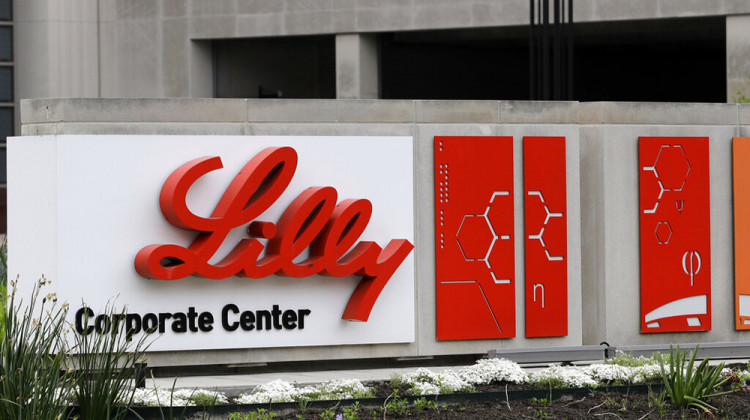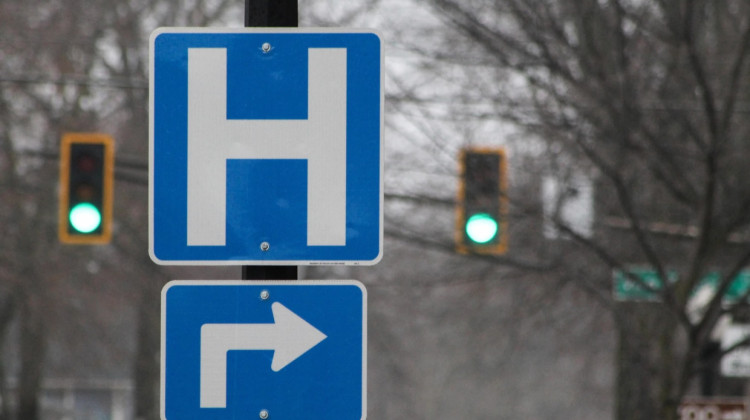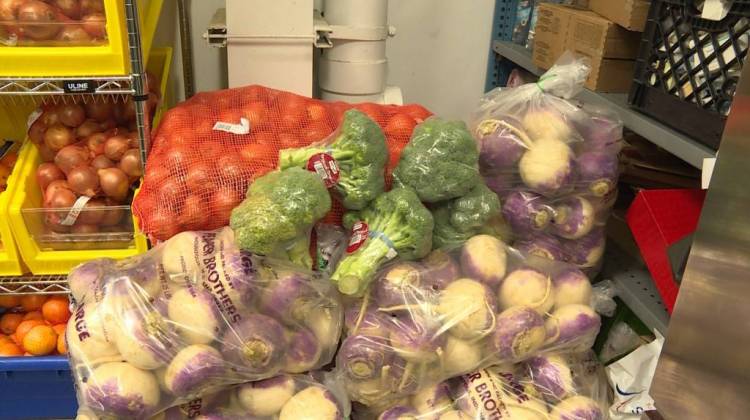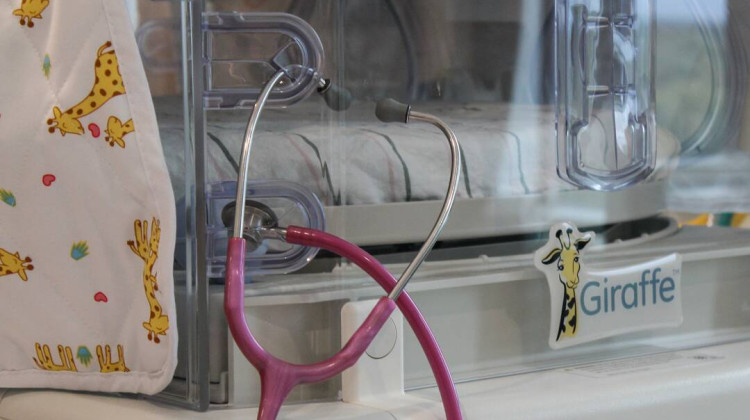
FILE - This April 26, 2017 file photo shows the Eli Lilly & Co. corporate headquarters in Indianapolis.
AP Photo/Darron Cummings, FileTOM MURPHY - AP Health Writer
INDIANAPOLIS (AP) — Eli Lilly’s new COVID-19 treatment helped the drugmaker’s fourth-quarter profit surge even though U.S. regulators approved its use late in the quarter.
The antibody treatment bamlanivimab brought in $871 million in sales for Lilly after the Food and Drug Administration authorized emergency use in November for patients with mild-to-moderate COVID-19.
That made it Lilly's second-highest selling product in the final quarter of 2020, trailing only the popular diabetes drug Trulicity, which totaled $1.5 billion in sales.
The one-time treatment is given through an IV and can be used for patients who are 12 and older who don’t require hospitalization. Antibodies are proteins that attach to a virus and block it from infecting cells.
Lilly said the U.S. government has agreed to buy nearly1.5 million doses of bamlanivimab, and 950,000 have already been delivered. The rest will be delivered by the end of March.
Nearly all of the drug’s sales in the quarter came from the United States.
Lilly said Friday that its overall revenue jumped 22 percent in the quarter to $7.44 billion. It climbed 7 percent not counting bamlanivimab.
Net income rose 42 percent to $2.12 billion compared to the final quarter of 2019. Adjusted earnings totaled $2.75 per share.
That topped Wall Street expectations. Analysts expected, on average, earnings of $2.37 per share on $7.27 billion in revenue, according to FactSet.
Lilly is still studying bamlanivimab. Early research results suggested that it may help clear the coronavirus sooner and possibly cut hospitalizations in people with mild to moderate cases.
The drugmaker said Tuesday that bamlanivimab combined with another antibody also reduced the risk of hospitalizations or death by 70 percent in newly diagnosed, non-hospitalized COVID-19 patients at high risk of serious illness because of age or other health conditions.
Lilly also said last week that the antibody treatment can prevent COVID-19 illness in residents and staff of nursing homes and other long-term care locations, which have been devastated by the pandemic.
Lilly said it plans to work with regulators to see about expanding the authorization to prevent and treat COVID-19 in those facilities, where vaccinations are already underway.
Experts have said drugs like Lilly’s could serve as a bridge to help manage the virus until vaccines are widely available.
Shares of Indianapolis-based Eli Lilly and Co. climbed 4 percent, or $8.38, to $218.50 in premarket trading Friday.
Follow Tom Murphy on Twitter: @thpmurphy
 DONATE
DONATE






 Support WFYI. We can't do it without you.
Support WFYI. We can't do it without you.